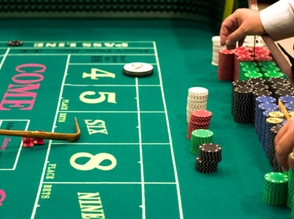Gambling is a common pastime and a well-entrenched part of American culture. From lottery tickets, to casinos, to online betting, the opportunities to try to beat Lady Luck abound. Gambling activities can provide social life, entertainment, and unexpected fortune but they can also drain finances, destroy families, and create a distraction and economic burden that can sideline a person's life.
Gambling can be especially attractive to the elderly. It requires no particular physical strength or prowess; it offers excitement; and in many cases, it provides the opportunity to get out and be with others, though online gambling is increasingly popular.
Researchers wondered how vulnerable to gambling problems people over 60 were; and what the risk factors, and other conditions associated with compulsive gambling might be.Seniors gamble to combat depression, loneliness, or anxiety or because they had limited access to other more exciting activities and sought to recreate the stimulation of former activities with the challenge of gambling.
When a person gambles, despite the fact that it is having a negative effect on their lives, they qualify as compulsive gamblers. They are considered to have a clinically significant gambling problem if they show four or more of the following behaviors within a 12-month period:
- Need to gamble with increasing amounts of money in order to achieve the desired excitement
- Are restless or irritable when attempting to cut down or stop gambling
- Have made repeated unsuccessful efforts to control, cut back, or stop gambling
- Are often preoccupied with gambling (such as having persistent thoughts reliving past gambling experiences, handicapping or planning the next venture, thinking of ways to get money with which to gamble)
- Often gamble when feeling distressed — helpless, guilty, anxious, depressed
- Often returns another day to get even after losing money gambling, (“chasing” one’s losses)
- Lies to conceal the extent of involvement with gambling
- Have jeopardized or lost a significant relationship, job, or educational or career opportunity because of gambling
- Relies on others to provide money to relieve desperate financial situations caused by gambling
The findings of the review study by researchers in Singapore and Australia should help seniors, families and clinicians recognize and address gambling problems in this often-overlooked age group.
The review found that the prevalence of gambling disorder in those 60 years old and older ranged from under 1% in some studies to over 10%. The reviewers attributed the wide range to different sampling methods and to the different locations and subpopulations represented in the studies.
Older people can become vulnerable to gambling as a way of recovering personal financial losses, or a way to deal with the loss of friends and spouses, social isolation, and declining health. All of these contribute to decreased participation in recreational activities the elderly used to enjoy.
The opportunity for socializing at casinos and other gambling venues is one of the biggest factors influencing gambling behaviors in elders according to the review. Gambling marketers capitalize on the social needs — and limited budgets — of seniors by offering transportation and subsidized meals.
Some seniors gamble to combat depression, loneliness, and anxiety; or because they had limited access to other more exciting activities. The excitement of gambling can be a way to try to recapture the stimulation of former activities with the challenge of gambling.
Gambling is not only a risk to your wallet, it is bad for your health. The review highlighted that the stress and sedentary lifestyle associated with gambling causes or worsens medical problems like diabetes, obesity, high blood pressure, and heart problems.Gambling marketers capitalize on the social needs — and limited budgets — of seniors by offering transportation and subsidized meals.
It's also true that gamblers tend to smoke and drink alcohol, though it is not clear how this works: whether gamblers are more likely to become smokers and drinkers, or whether smokers and drinkers are drawn to gambling. There does seem to be an interaction between pathologic gambling behaviors and alcohol abuse and dependence in which each behavior feeds into and worsens the other.
Then there are the excessive strains gambling can put on the finances of senior citizens. Their fixed incomes limit their ability to compensate losses. Families may be unaware of the extent to which their senior members are gambling, as older adults are often reluctant to admit to problems, turn to others for help, or to burden their families with the financial consequences of their behaviors.
Seniors may hide or deny their problem because they are aware that the debts they have are the result of an undesirable behavior of which their families would disapprove.
The message of this research is that problem gambling is a serious issue among senior citizens and is often overlooked. There are some good reasons why gambling is attractive to this age group, and it poses some unique risks for socially isolated seniors on fixed incomes.
Families or individuals who have concerns about their own or a loved one’s gambling can find help from a variety of resources.
The study is published in Addictive Behaviors.





